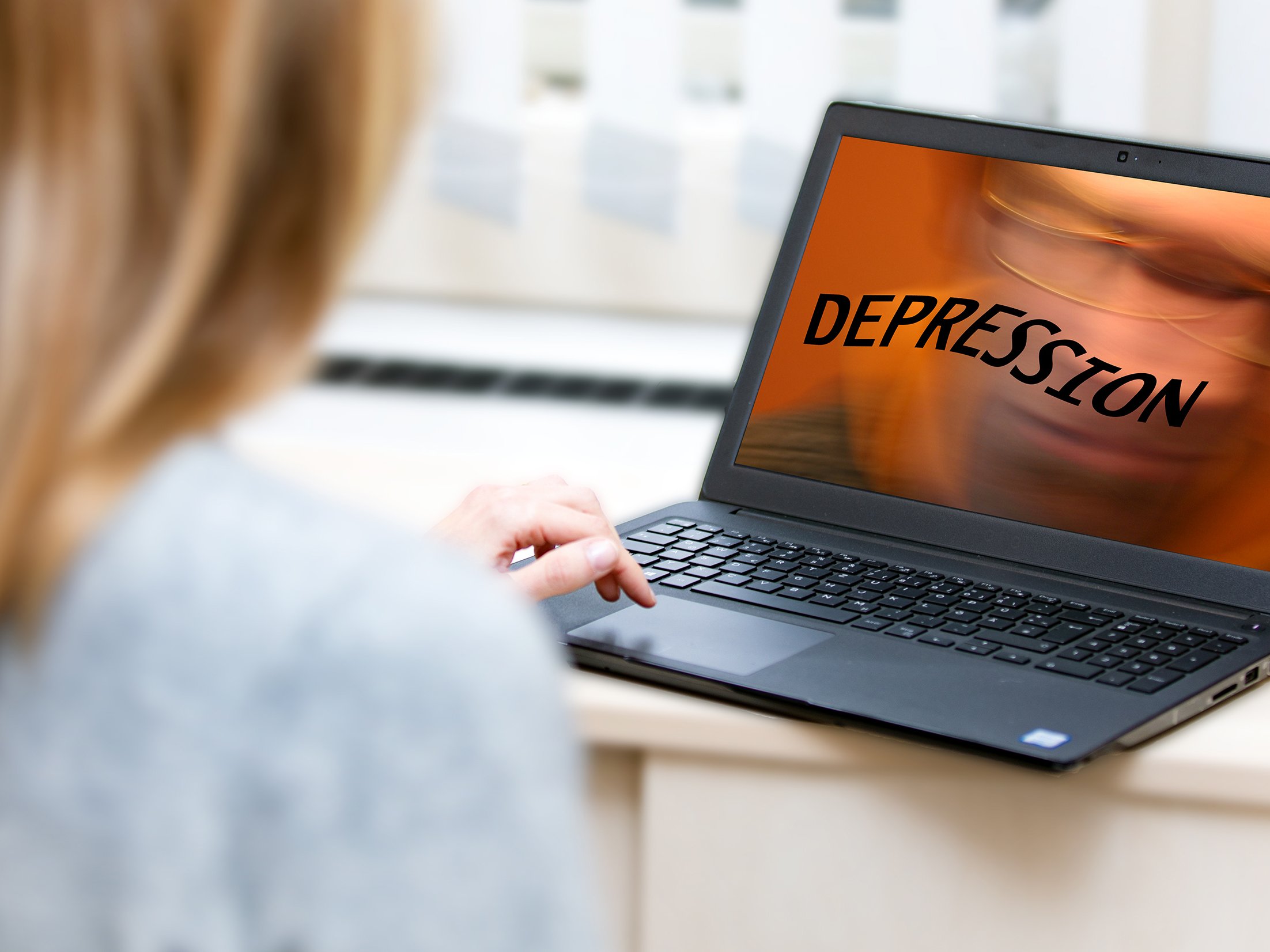Study examines success factors for use of internet-based psychotherapy.

Copyright: Karin Kaiser/MHH
![[Translate to Englisch:] Copyright: „Karin Kaiser / MHH“.](/fileadmin/mhh/presse/MHH_Insight/2021/210316_Kahl.jpg)
Professor Kahl; Copyright: Karin Kaiser / MHH.
Status: 16 March 2021
Depressive disorders are among the most common illnesses. According to the Federal Ministry of Health, about 16 to 20 out of 100 people suffer from depression or chronic depressive mood at least once in their lives. Mental disorders can be managed well with medication and psychotherapeutic treatment. But those who need professional help sometimes have to wait a long time for an appointment in a practice or clinic. Evidence-based online treatments are an effective alternative. But although four such scientifically tested programmes are now available in Germany, they are only used by less than one percent of those affected. A study led by Professor Dr. Kai G. Kahl, Managing Senior Physician at the Department of Psychiatry, Social Psychiatry and Psychotherapy at the Hannover Medical School (MHH), is now seeking to clarify why this is so and how the services can be improved. The study is supported by the state of Lower Saxony and the Volkswagen Foundation with half a million euros from the " Niedersächsisches Vorab".
Just as effective as conventional psychotherapy
"Depressive illnesses are not only a psychological and psychosomatic burden for patients and their relatives, but also an economic problem for those affected and for society due to illness-related unemployment or early retirement," says Professor Kahl. Only about a quarter of those with the disease take part in therapy at all. Among other things, this is due to waiting times. Because there are more patients willing to undergo therapy than available appointments, it takes an average of three months to get an initial consultation and another three to six months to start the actual therapy. Online treatments could close the gap in care. Their effectiveness has been proven, he emphasises. "Internet-based cognitive-behavioural therapies guide the user step by step through a structured process and often have a comparable effect to conventional face-to-face psychotherapy." Nevertheless, the acceptance of these free offers is low, he says.
The study will now show which reasons play a role in this, for example whether too few general practitioners point out the online possibilities to their patients or whether the application itself is not user-friendly enough or not attractive enough for users. In order to find out the critical success factors, patients, physicians and developers of online treatments will be interviewed qualitatively on the basis of a scientifically based technology acceptance model. In a second step, the findings will be quantitatively tested on 5,000 people with depressive disorders. The aim is to adapt future programmes to the needs of patients and at the same time to raise the awareness of the medical environment for digital therapy methods. "We are happy about the confidence of the sponsors and want to make an important contribution to the digitalisation offensive in medicine," says Professor Kahl.
The project is a cooperation between MHH, Leibniz Universität Hannover (Professor Dr Michael H. Breitner, Professor Dr Annika Herr, PD Dr Jan Zeidler), Ostfalia University of Applied Sciences (Professor Dr Daniela Eidt-Koch) and AOK (Dr Jona Stahmeyer).